'There's A Women’s Uprising On The Horizon': Three Iranian Women React To Mahsa Amini’s Death
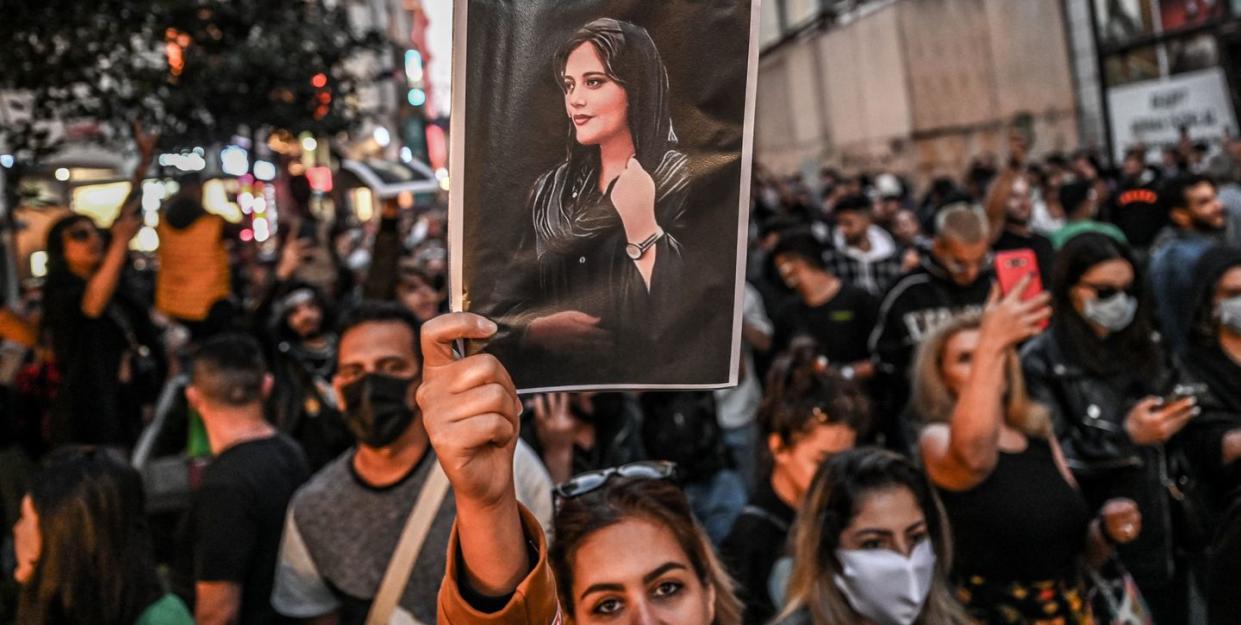
Over the last week you’ll undoubtedly have seen images of a woman with long, jet black hair lying in a coma on a hospital bed, hooked up to a ventilator. This woman, her face bruised almost beyond recognition, was Mahsa Amini – a 22-year-old woman in Tehran, Iran who died last week hours after so-called 'morality police' held her in custody for allegedly breaking hijab rules.
On Friday, September 16, Amini - a Kurd from the north-western city of Saqez - died in hospital after spending three days in a coma. Before her arrest by the Gasht-e Ershad (Guidance Patrols), she was walking the streets of Tehran with her brother. She was accused of breaking the law requiring women to cover their hair with a hijab, or headscarf. She fell into a coma after collapsing in police custody.
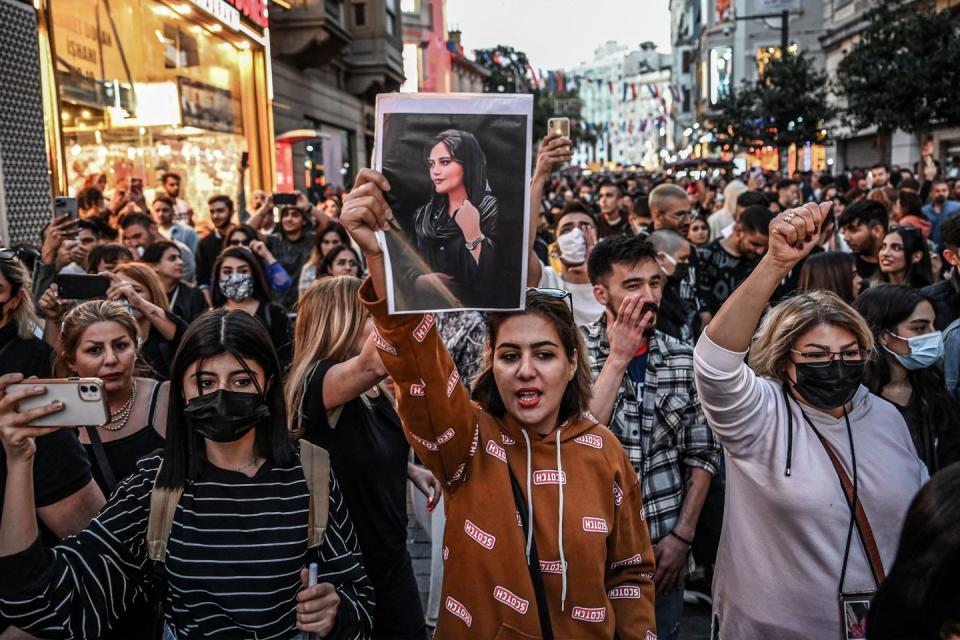

Since her death, Acting UN High Commissioner for Human Rights, Nada al-Nashif, said there were reports that police had beaten her head with a baton, and also banged her head against one of their vehicles. In response, the Iranian police have denied maltreatment, claiming that the 22-year-old suffered ‘sudden heart failure’, and that the accusations are ‘cowardly’. Her family say she was fit and healthy, with no prior heart conditions. Iran’s president Ebrahim Raisi has said Amini’s death ‘must certainly be investigated’ - the same day, he cancelled a televised interview with CNN correspondent Christiane Amanpour after she refused to wear a headscarf at his request.
These women in #Iran’s northern city of Sari are dancing and burning their headscarves… anti-regime protests have now spread to dozens of cities from north to south, east to west… all triggered by the death of #MahsaAmini while in the custody of Iran’s morality police. pic.twitter.com/BBDvgC5L1w
— Rana Rahimpour (@ranarahimpour) September 20, 2022
Aa news of Amini’s barbaric death spread across Iran and the world, it provoked a fiery anger over issues relating to freedom in the Islamic Republic. Women in Iran have been at the forefront of protests, cutting their hair and burning their hijabs in widely-circulated videos filmed from the streets of Rasht, Sanandaj, Saqez and 80 other cities and towns across the country. Protesters have torched police stations and vehicles, and seen men joining their cause in defiance of these more extreme Islamic leadership principals. A human rights group say that at least 31 civilians have been killed, as of Friday, September 23. In the last few hours, Iran has blocked Tehran and Kurdistan’s internet provision, as well as access to Instagram and WhatsApp in an attempt to curb the growing protest movement.
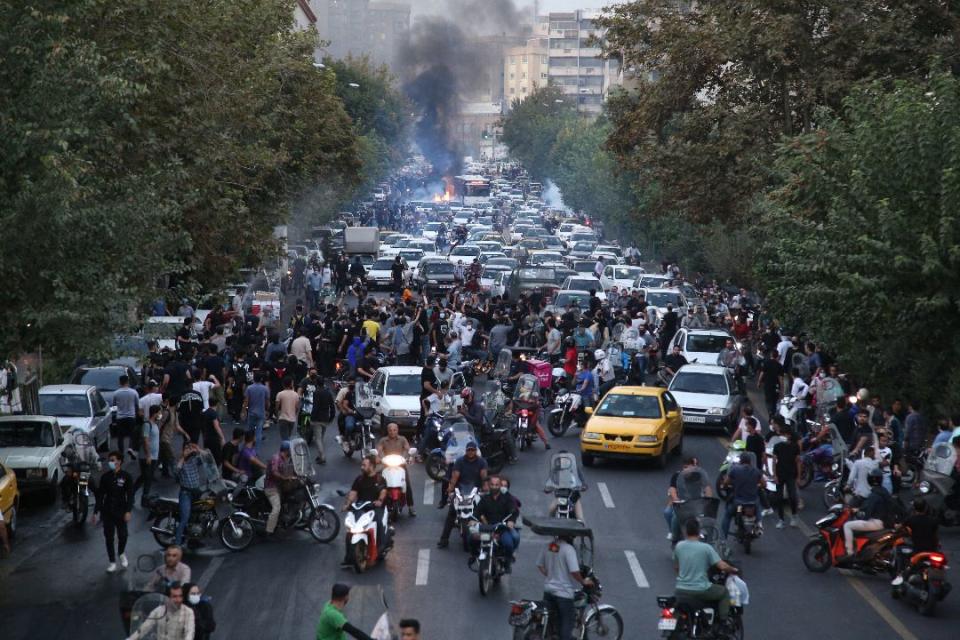
On the seventh day of the protests, we spoke to three Iranian women - who have chosen to remain anonymous - about reactions to Amini’s tragic death and to find out why this moment might spell out the the beginning of the end for women’s subjugation and oppression and Iran.
I was extremely sad and angry when I learnt of Mahsa’s death on Twitter. If it wasn't for individuals working in the hospital sharing the photos of her lying in bed before she died, her death would’ve been covered up. The government is still insisting that she died of a brain tumour, or a stroke or a heart attack. She wouldn’t have had blood coming out of her ears or her eyesockets broken if that was the case. It seems clear to me that her skull was smashed after being hit against the walls in the police van.
The treatment of women in Iran is barbaric. Women can’t choose the clothes they want to wear, they can’t enter into certain professions, they can’t divorce their husbands without them agreeing to it, and even then, she will be forced to hand over her children to her ex-partner. Women are intelligent, we don’t need the Gasht-e Ershad (Guidance Patrols), because we don't need guidance. Their presence implies that women are second class citizens. Islam should have no place in politics.
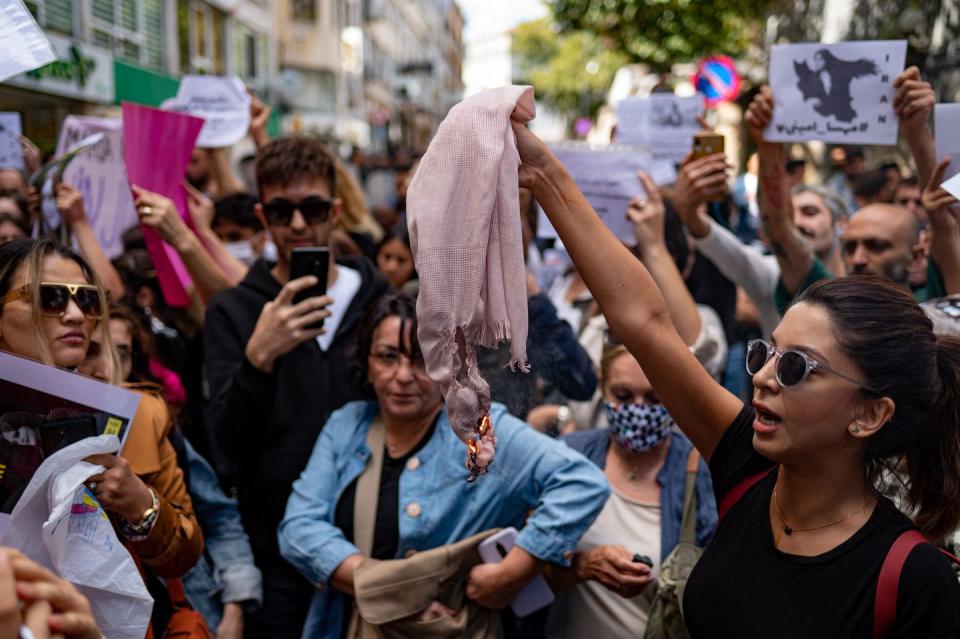
There are some people in Iran who believe that if a woman doesn’t wear a headscarf that she’s somehow 'asking for it'. Covering your head has nothing to do with a man or woman’s behaviour. I totally oppose the headscarf – I’ve never had a man get an erection because he saw my hair. It’s insulting to men to suggest that they can’t control themselves unless a woman covers up, as if men are walking the streets looking to attack us.
If a woman wants to wear a headscarf, then she should have the freedom of choice to do so. I’m not opposed to that. But anyone who says they haven’t been arrested in Iran for not wearing a headscarf or that there isn’t an issue, has gotten away with it by sheer luck.
Mahsa’s death has ignited a volatile atmosphere in Iran and a fire in people’s bellies – there’s a women's uprising on the horizon. In recent days we’ve seen men and women stand in front of guards holding guns in their hands. Most people in Iran are living on the breadline and have nothing to lose right now.
While I’ve been feeling sad and angry since hearing of Mahsa’s death, I'm also frustrated and feeling helpless and scared for women in my country. Women in Iran have long been forced to wear clothes they don’t want to wear, are pushed back and cornered in all aspects of their lives, from business and education, to sport and social activities.
If a woman is sexually assaulted or harassed, the blame falls on them and their choice of clothing. The Gasht-e Ershad are scary – they give me chills. A couple of years ago I left Iran for a few years and I was terrified of police cars in other countries. It’s hard to believe such fear can exist in this day and age.
I don’t want to wear a hijab, but when I’m in Iran I have to. I’m forced to. Whether you want to wear a hijab or not, it should be a personal choice a woman decides for themselves, not because someone else demands it.
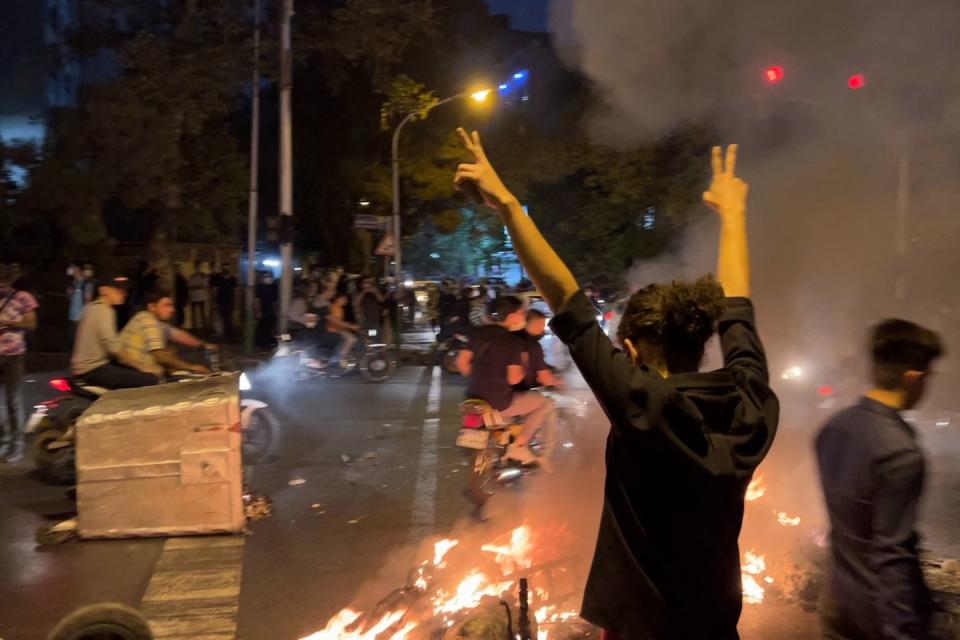
Right now, women are burning their headscarves to show 43 years of frustration since the the mandatory hijab law was introduced in 1979. Over the years, Iranian women have tried to make the headscarf a fashion accessory, by choosing to buy colourful and designer versions, but it’s not enjoyable to wear one when it’s not out of choice.
People in Iran, both old and young, want change - a positive change where people have choice. But we need people keeping the conversation alive. The Internet has been cut off, and access to Instagram and Whatsapp has been prevented. If communication dies down, then the protests will calm, which is why we need help and support from outside of the country.
Iranian women are a symbol of resilience and resistance. They're shining like stars. When the change comes, it’ll be so sweet. We'll light up the sky.
We’ve become so numb to the atrocious crimes against women in Iran that I didn’t react to Mahsa’s death initially, until the news really sunk in. I thought to myself: How could the ‘morality police’ do something so immoral? When the realisation of what had happened finally hit me, I felt sick and disgusted by yet another inhumane act. I felt so saddened that this young woman had been robbed of a future just for exposing her hair.
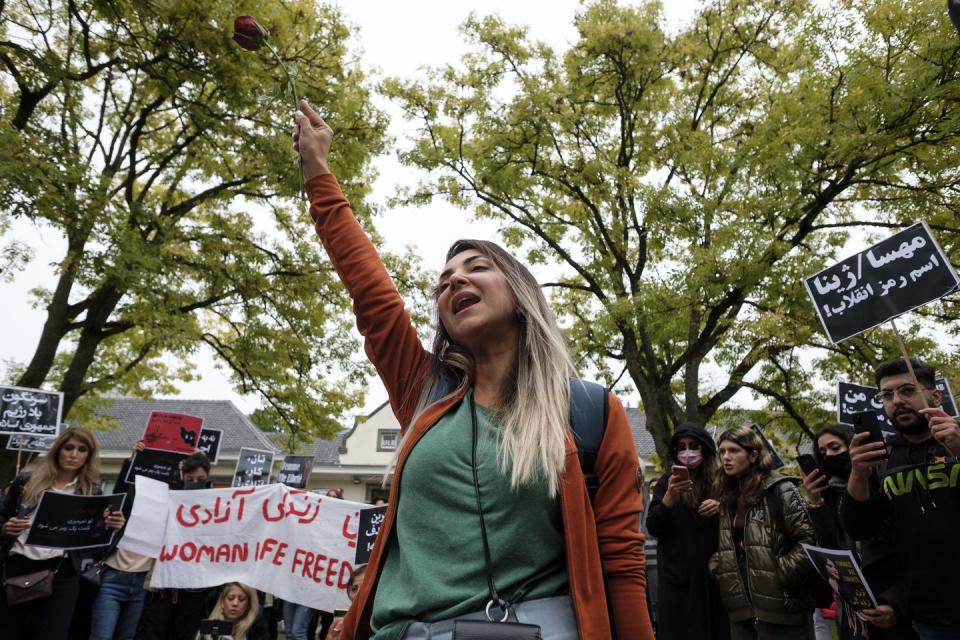
Iran’s view and treatment of women is appalling and archaic. While I’ve never lived in Iran, every time I’ve visited I’ve felt like a second class citizen. I’ve always been on edge that any time I could be ‘punished’ for being out of line or ‘against’ the regime. I got in trouble for entering a lift with men once - a very normal thing to do anywhere else in the world. I was questioned multiple times for my ‘relationship’ with my father and had to prove we were related just for being in the same car together. Once, when I was skiing, I was pulled up by the 'morality police' while on piste for having coloured chap stick on. I think the 'morality police' are immoral and brainwashed by the regime. I can only imagine what women who have lived there all their lives have had to endure.
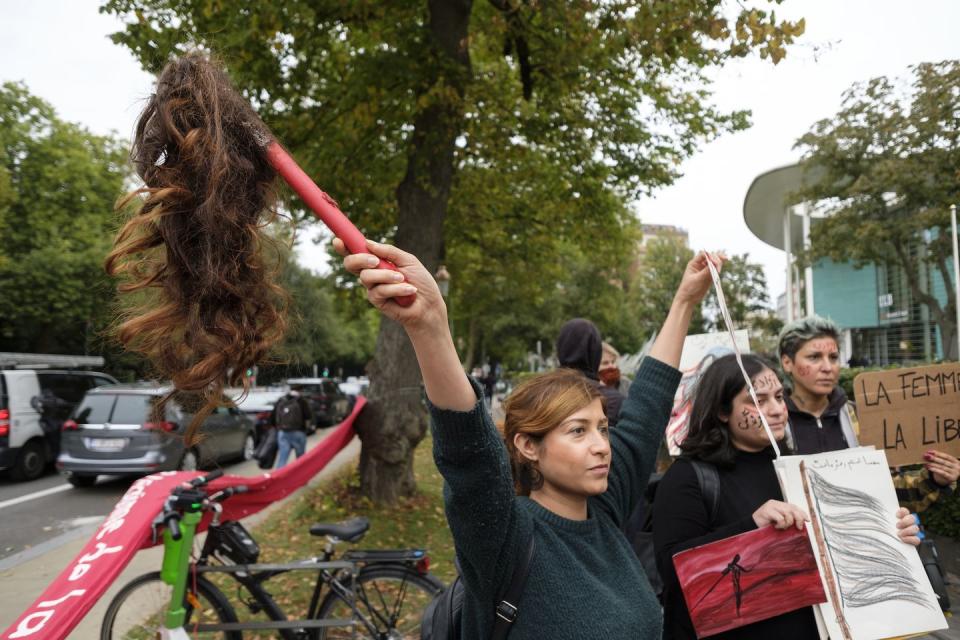
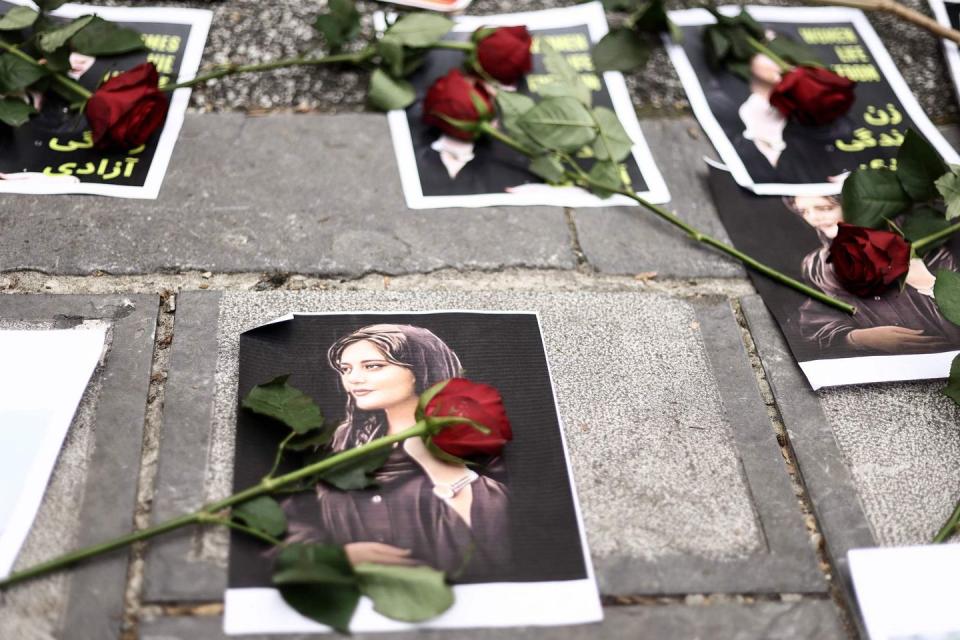
It's up to an individual if they want to wear a hijab or not. I respect any woman that wants to veil, and can understand their reasons, but I would never wear one if I wasn't obligated too. Women burning their hijabs in Iran right now are brave and bold. I pray that their actions are impactful and result in reform. Their actions are indicative of their frustration after decades of oppression.
Every time women in Iran have tried to rise and revolt they have been shut down with brutality. But I feel their energy is much stronger this time, and I pray for progress.
You Might Also Like


